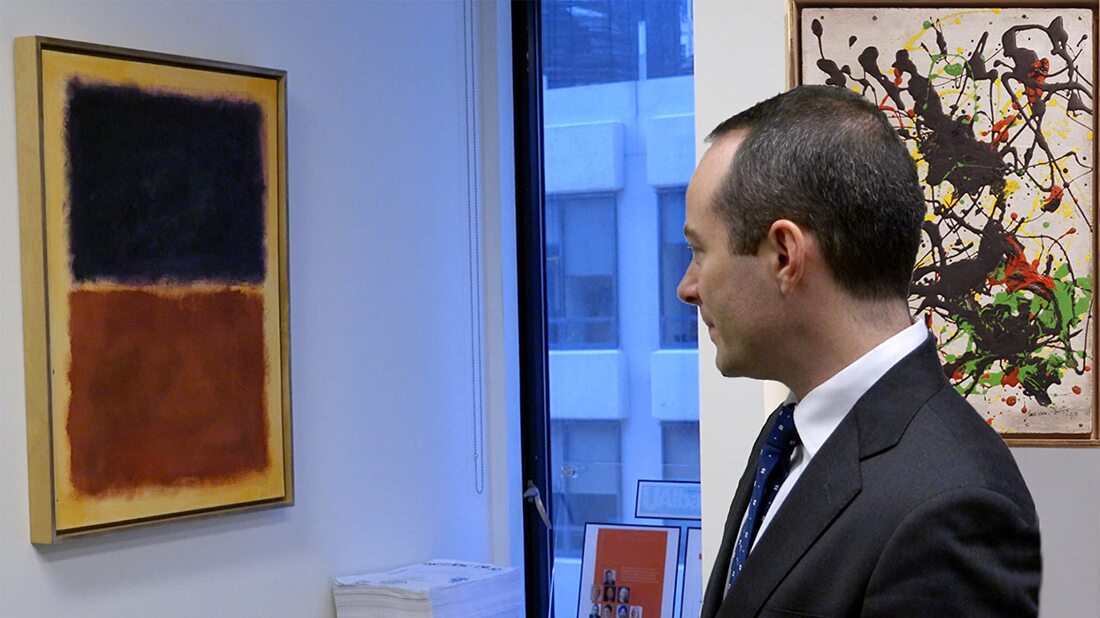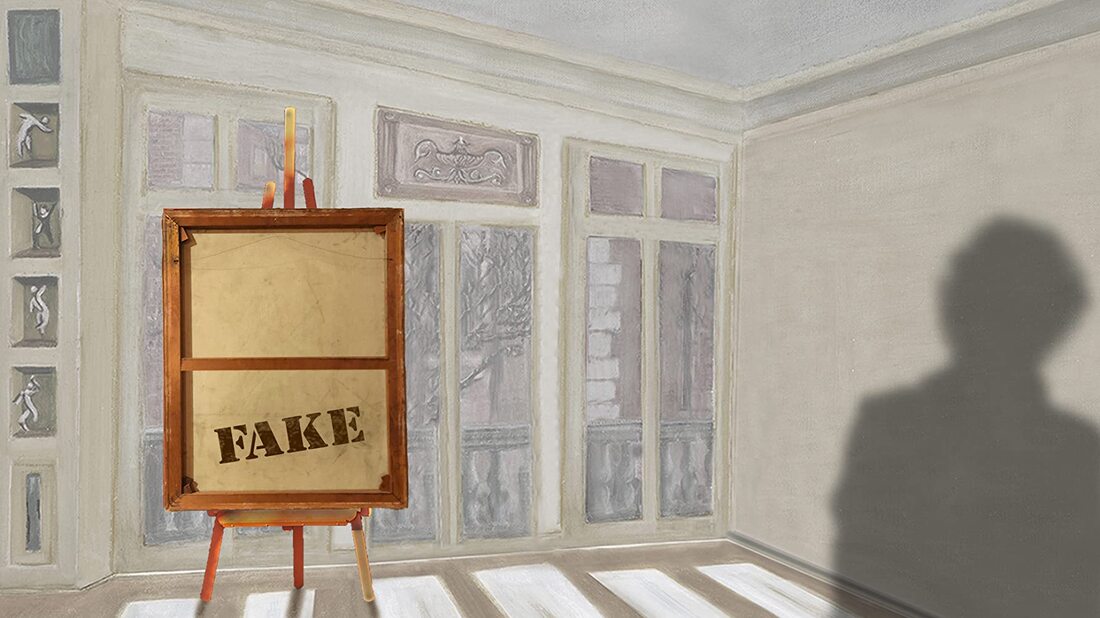|
Review by Sean Boelman
Daria Price’s documentary Driven to Abstraction has an insane story that should lend itself quite well to a cinematic retelling. And yet, somewhere along the line, something is lost, making this a nearly insufferable and dull film, deconstructing the art world in a level of detail that would be of little interest to none but the most passionate art aficionado.
The movie tells the story of the tragic downfall of one of New York City’s once most prestigious galleries because of an art hoax that rocked the industry. On paper, this sounds like this should be a fascinating combination of a heist and a fall from grace, but in execution, it’s really nothing more than an analysis of the flaws of the art market. Viewers will come into this story hooked by the premise wondering how something like this could happen. How could one of the most respected galleries in the world be involved in a scam involving fake Jackson Pollock paintings? How could someone ever think that they would get away with mimicking one of the most iconic abstract artists of all time? Ultimately, viewers will be left with far more questions than they have answers. Instead, the film attempts to offer an ethical discussion of the responsibilities of an art dealer. And quite frankly, nobody cares. Although the question of who is to blame for this situation is important knowledge for future reference within the industry, it simply isn’t compelling enough of an investigation to make for an entertaining documentary.
The movie really struggles in trying to give the audience someone to identify with as the protagonist. Are we supposed to feel sympathy for this art dealer for losing her career because she was duped? Or should we admire the con-artists for nearly getting away with these forgeries? Obviously, a lot of sympathy lies with those who actually lost money purchasing these paintings, but their perspective is largely ignored.
It seems that the real subject of the film is none of these. The real subject of this movie could be taken as the art industry itself. Price obviously wants this to be an exposé about the harmful practices of dealers brought about by a toxic industry, but there’s not enough discussion of this issue from the perspective of those who it really affects: the artists. And on top of the film’s narrative issues, it simply doesn’t look very good. And while interviews that are plainly shot and dull uses of archive footage can usually be forgiven, that is not the case when the movie itself explores a visual medium. The only part of this film that does impress is its score, which is actually pretty nice, but mixed into the final cut in a frustrating way. Driven to Abstraction is a boring documentary that has no right to be as uninteresting as it is. One day, this will make a great narrative feature with some A-list stars and some flashy action sequences, but today, this documentary is one to skip. Driven to Abstraction is now streaming online in partnership with indie theaters. A list of participating locations can be found here. Rating: 1/5
0 Comments
Leave a Reply. |
Archives
July 2024
Authors
All
|
|
|
disappointment media
Dedicated to unique and diverse perspectives on cinema! |


